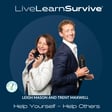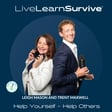
Interview with Paul Dorin, Cartoonist, Ilustrator and NSW Fire + Rescue Station Commander.
Paul Dorin is a station commander with Fire and Rescue NSW and in 2024 received the Australian Fire Service Medal in the King’s Birthday Honours for more than 30 years of service as a senior NSW firefighter. Based at Corrimal Fire Station in NSW Paul has a passion for helping others and has become a role model for his peers and local community which has seen Paul develop many safety initiatives. Firstly, the Home Care Disability Fire Safety Program in which he promoted fire safety efforts involving clients and their carers, and secondly the winter’s Smoke Alarm Action Day project, known as SAAD which takes place on June 1st every year. When not at the Fire Station, Paul is an incredible cartoonist, and we are proud to say he is the Illustrator behind all of our books which bring the stories to life in a spectacular way. Paul began drawing cartoons when he was very young at school, but before drawing l had a passion for modelling things out of plasticine. His late brother Steven was his inspiration to swap the plasticine to pen and ink and the family Louvre kitchen gallery eventually led to Paul getting his first published cartoon in The Bulletin magazine back in 1984. Today his cartoons appear in suburban & regional newspapers all around Australia and different parts of the world, and of course in our books, for which we could not be more grateful. Over the years Paul has supported the Jean 4 genes charity raising money for the Children’s Medical Research Institute by painting on the jeans of celebrities such as Mike Tyson, actors Robin Williams, Jonah Hill, Jim Belushi, Keven Kline, Frances Mc Dormand, David Hasselhoff to name but a few.

